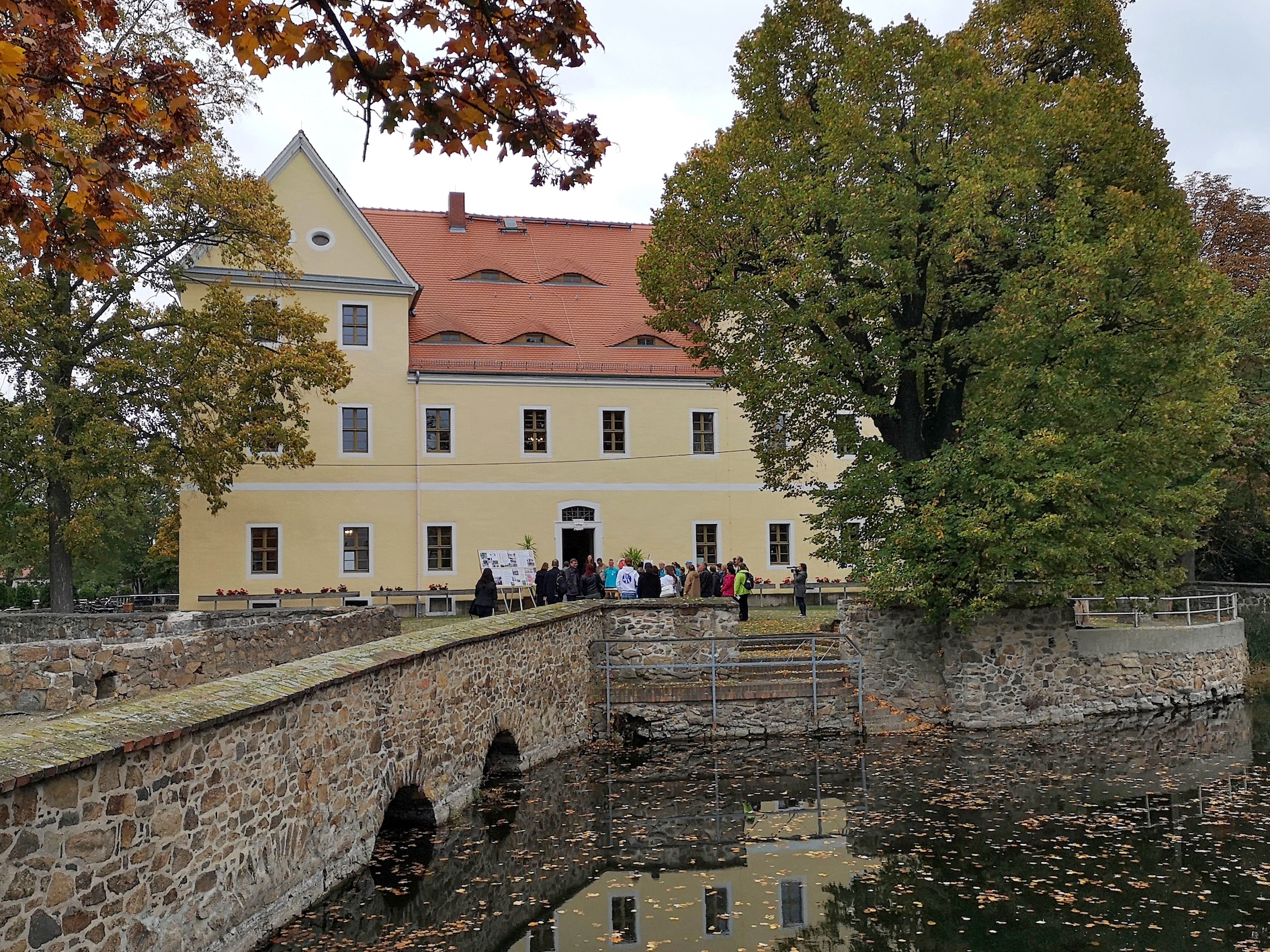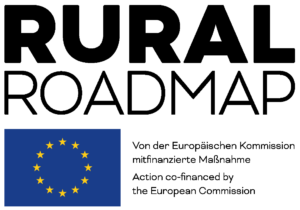
Thallwitz, Saxony, Germany
Thallwitz is a rural community consisting of nine district villages and around 3,500 inhabitants. It is located 30 kilometers east of Leipzig with the closest rail connection in Wurzen, eight kilometers away. The population is still declining, albeit only slightly, and is rapidly aging. To tackle this, Thallwitz is building pioneering bridges into the future through courageous, innovative and above all self-initiated cooperative action in local, regional and international networks – which is now bearing fruit in the increase of under 18 year olds. Revitalized village centres, green commercial areas, innovative company settlements and citizens’ initiatives within the framework of “Cosmopolitan Saxony – cosmopolitan Wurzener Land” create livable and lively, actively designed villages. Integration instead of exclusion and refusal – this is what this community radiates and hopefully it infects many others in the surrounding environment.
In anticipation of the threat of further municipal incorporations, the municipality of Thallwitz and three other surrounding communities in Wurzen are cooperating in the voluntary administrative and supply alliance “Aktionsraum Wurzener Land”. Their focus lies mainly in the areas of energy transition, broadband, tourism and mobility, in order to minimize municipal expenditure and increase income by combining them. A beacon of this cooperation – and “unique in Germany” (https://land-werke.de/) – is also the Wurzener Land-Werke, an energy company founded in 2016 by the four municipalities for services of general interest with a focus on the provision of renewable energies in the areas of electricity and local heating supply, photovoltaics (solar park “Kaserne Wurzen” with 10,322 modules), wind energy, e-mobility and street lighting as well as broadband expansion.
Since 2018, Wurzener Land-Werke GmbH has been a member of the EU project ZENAPA (Zero Emission Nature Protection Areas) as part of the “Geopark Porphyryland” region and is active in climate protection in the Wurzener Land. The company owes its foundation to this project. ZENAPA provided financial support during the complex founding process, from the business plan to the corporate identity. ZENAPA is scientifically supervised by the Trier Environmental Campus Birkenfeld, Institute for Applied Material Flow Management IfaS, which is also in charge of the development of the energetic concepts for the individual districts in the “Wurzener Land action area”. The most recent project – still in the development phase – is the Thallwitz energy center, a “green industrial park” with a biomass wood-fired power plant, taking into account the potential for using agricultural wood, and the establishment of a plant for green hydrogen production.
Almost the entire area of the municipality of Thallwitz is a priority area for the provision of water. The Canitz/Thallwitz drinking water protection zones also ensure the supply of drinking water to the city of Leipzig. In the protection of drinking water resources, Wassergut Canitz stands out, a certified model and training company for organic farming, which researches and operates innovative, environmentally friendly and at the same time market-oriented agriculture on 750 hectares in the middle of the drinking water protection area. In addition to scientific conferences, the company relies on the direct persuasion of neighboring, still conventionally managed businesses and the marketing of its own harvests. The WERTvolle (VALUEable) bread, baked with its own grain, and the WERTvolle dish, which consists almost exclusively of ingredients from the Wurzener Land, are used to spread its concerns and are offered in nursing homes and daycare centers. Wassergut Canitz is also a pioneer in testing agricultural wood for water protection, climate protection and climate adaptation, biodiversity and erosion control. In order to utilize the prunings, local heating networks with wood chip heating are being expanded in the municipal area.
Far from the concept of agricultural wood, the tree plantings of recent years have been characterized the sustainable, ecological upgrading of rural areas. 1,000 elms, oaks, chestnuts, fruit trees and bird cherries were planted, 617 trees alone by students from the Thallwitz primary school. Environmental education also takes place in the Green Classroom in Park Canitz, an architectural award-winning replacement building on a former agricultural estate.
A project at the beginning of the realization is SAULIS (spectacular work and life in the super volcanic center). In cooperation with the Röcknitz mansion, which is now a geoportal of the “Geopark Porphyrland”, a former, listed racehorse stable is being renovated. It will host co-working and co-living – as an innovative, regional center for collaborative, forward-looking work and life, for education, art and culture.
In the vacant former middle school in Röcknitz, there will be space for new, barrier-free forms of living. Since the region in the Muldenland has further vacancies, some of which are impressive, “DorfBauKulTouren” offers bike tours to create interest among the nearby townspeople. The art campaigns of the FAIL (Fine Arts Institute Leipzig), which strengthen social debate and the local art scene and led to the founding of the art group9, the “Multiple House” in the old village school in Böhlitz with installations for the changing activities of a country doctor, a physiotherapist and other service providers, the inn “Zum Reußischen Hof”, which was rebuilt by the community after a fire and is now run by the municipality itself, the KulturKirche Nischwitz, which was jointly renovated and used by the church and community, a dance hall revived through private commitment, the book exchange garage and much more offer excellent suggestions for sustainable renewal on a large and small scale despite major demographic challenges.
Last but not least, the youth parliament Wurzener Land should be mentioned here, whose representatives also accompanied the European Village Renewal Award for the municipality of Thallwitz on film and in interviews. Their commitment is an important building block for the political participation of the younger generation. They were elected by over 500 students in 2021 and promote their concerns in a highly appealing manner on social media. They are one of the keys to the growing attractiveness of this rural region.
Evaluated: 2022









